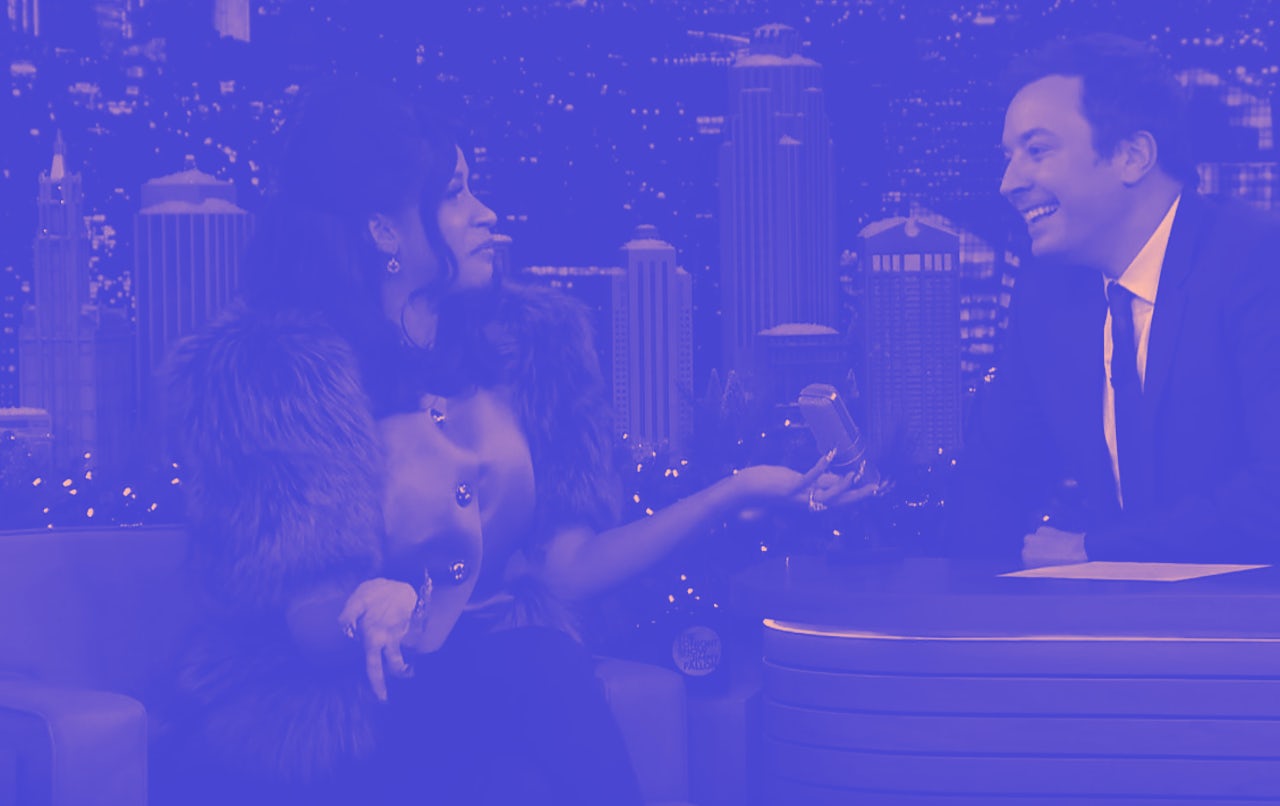“There’s no way they’re going to write good skits for her,” my coworker remarked, when it was announced Cardi B would be on Saturday Night Live. Of course, she was right. Cardi, glamorous in her pregnancy, delivered an energetic performance, even while carefully staying mostly in place. But the one skit that involved her was simply not funny while also being a spot-on depiction of how some of Cardi B’s white fans perform their admiration of the rapper.
In the skit, Aidy Bryant plays a version of herself as a fan who draws empowerment from Cardi B’s music. “I love like how assertive and bold she is,” says fellow cast member Cecily Strong, reflecting on her excitement that Cardi B is the show’s performer. “She just like says whatever she’s thinking.”
“I know, and I think I need to be more like Cardi B,” Bryant says, kicking off a montage of scenes where she adopts the rapper’s mannerisms in an effort to stick up for herself. “Why don’t you shut your ho ass up?” she tells Beck Bennett, going on to reference her (fake) origins in the Bronx. Later, she calls Chadwick Boseman, the host of that episode, a bitch and silences him with a Cardi B-esque chirp.
It was a little too on the nose, as the rise of Cardi B as mimickable empowerment totem has been an unwelcome byproduct of her rise to fame. From the moment “Bodak Yellow” hit the Billboard Hot 100 last summer, Cardi B has been regularly subjected to crass impersonation and tokenization by her “mainstream” fanbase. A legion of white folks have fashioned a mask of a modern day, “ghetto fabulous,” emotionally untouchable women’s icon and called it Cardi B, co-opting the mannerisms they label loud, annoying, or disruptive in black and brown women who aren’t yet rich.
As more and more entertainers of color seize the opportunities and honors they’re due, the people who shape and participate in the conversation must examine their own biases and assumptions as well.
Cardi B’s December 20 interview on The Tonight Show was the most visible example of the phenomenon. At times, you can sense a genuine interest and admiration in Fallon’s eyes. At others — like when Cardi punctuates an answer with an “mhmm” or “aaooww”, or when she chirps “okurr” — he pauses, looks down, and laughs to himself, detaching from the conversation as if to step back and say “can you believe this chick?” The audience in turn laughs at his moments of light-hearted disbelief and attempts at impersonation. With Fallon as the stand in for suburban white America, it’s hard to understand when he is laughing with her and when he is laughing at her.
A similar thing happened to Tiffany Haddish, who like Cardi experienced a meteoric rise to fame last year with the release of Girls Trip. Almost overnight, she morphed into a household name and, with her frank and always funny reflections about living in poverty, soon became a pop culture symbol of women’s empowerment and authenticity. With that came the unnerving posts across social media of people calling Haddish their “spirit animal,” or wanting to be her or her best friend. Perhaps the people imagining Haddish in their own white-washed version of Girls Trip wouldn’t be so unnerving if black women who have experienced poverty and the horrors that come with it weren’t so otherwise uncared for by most of white America. Then again, maybe it would.
Whereas women like Cardi and Tiffany could usually only be seen in pop culture as oversexualized or nurturing and sexless, they can now also be stuffed into the archetype of the loud, vibrant sexually-liberated source of social freedom. For some that looks like progress, but too quickly their artistic and personal narratives fall in service to white folks. It’s no wonder then that the most meaningful media interactions with these two have come from from other women of color. Rawiya Kameir’s 2016 and 2017 profiles of Cardi in The Fader remain unmatched in their sensitivity and depth. (Disclosure: Kameir formerly worked at The Outline). Doreen St. Félix’s September 2017 New Yorker essay on Cardi stands out, as does Yohanna Desta’s 2017 Vanity Fair profile on Haddish.
At risk of sounding cynical, there will always be vaguely racist remarks made by (overwhelmingly) white people who have unexamined prejudices against and assumptions of women of color, whether they be poor or rich. As more and more entertainers of color seize the opportunities and honors they’re due, the people who shape and participate in the conversation must examine their own biases and assumptions as well. (That, or give up their seats for people who can do it better.) This is especially critical on television, which continues to be the most visible venue of discourse about race and gender in America. Tonight, Cardi will take the stage with Fallon to become the first-ever co-host of the legendary Tonight Show. Whether or not the show does her proven comedic talents justice remains to be seen; she still, after all, has to share the stage. The only thing not in question is that Cardi will own the opportunity, regardless of what anyone else makes of her.
